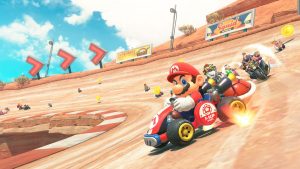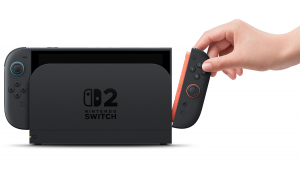The Madness of Sega’s Arcade Super Circuit

I wanted to take a look this week at an unusual arcade release from 1989, Sega’s Super Circuit. This hybrid arcade title took the concept of first person driving and ramped up the immersion, to give players a real world birds eye view of racing against their fellow arcade goers.
The game was released at a time when most of the original ideas for arcade titles had been and gone, and this appears to be Sega’s attempt to breathe some much needed new life into the industry.
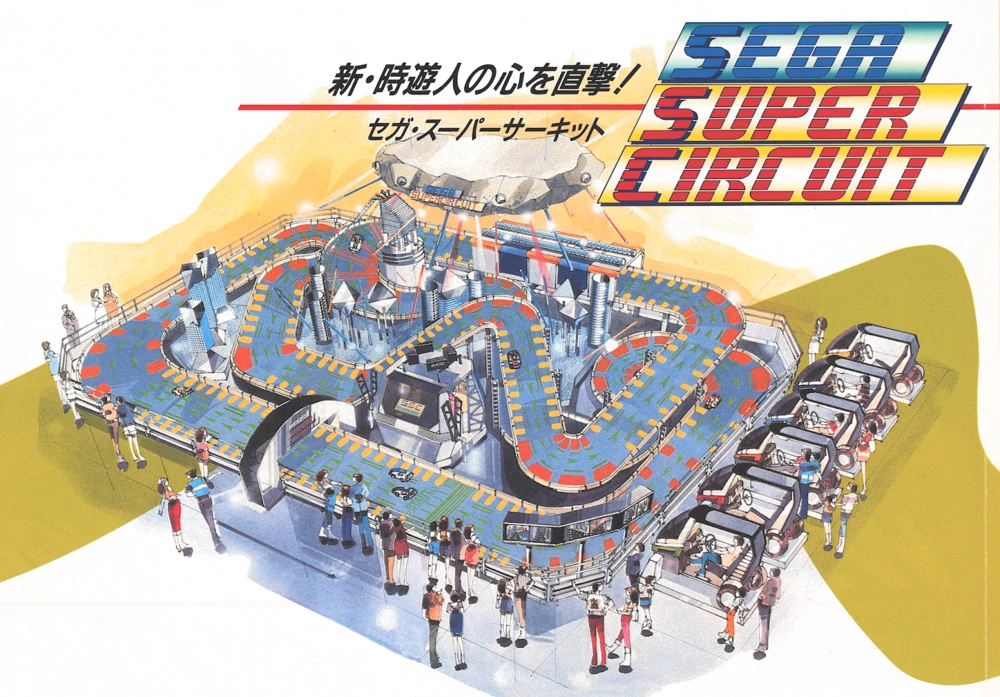
Developed by Sega’s Mechatronics R&D Department, the game started out as a joint project involving car manufacturer Nissan. Originally monikered Super Game Z, it was showcased to the public at a 1987 trade show in Japan and later rebadged as Sega Super Circuit. Very few setups were actually built, and the game was installed at temporary events and a small number of Sega’s new-style amusement centres between 1988 and 1991 in Japan.
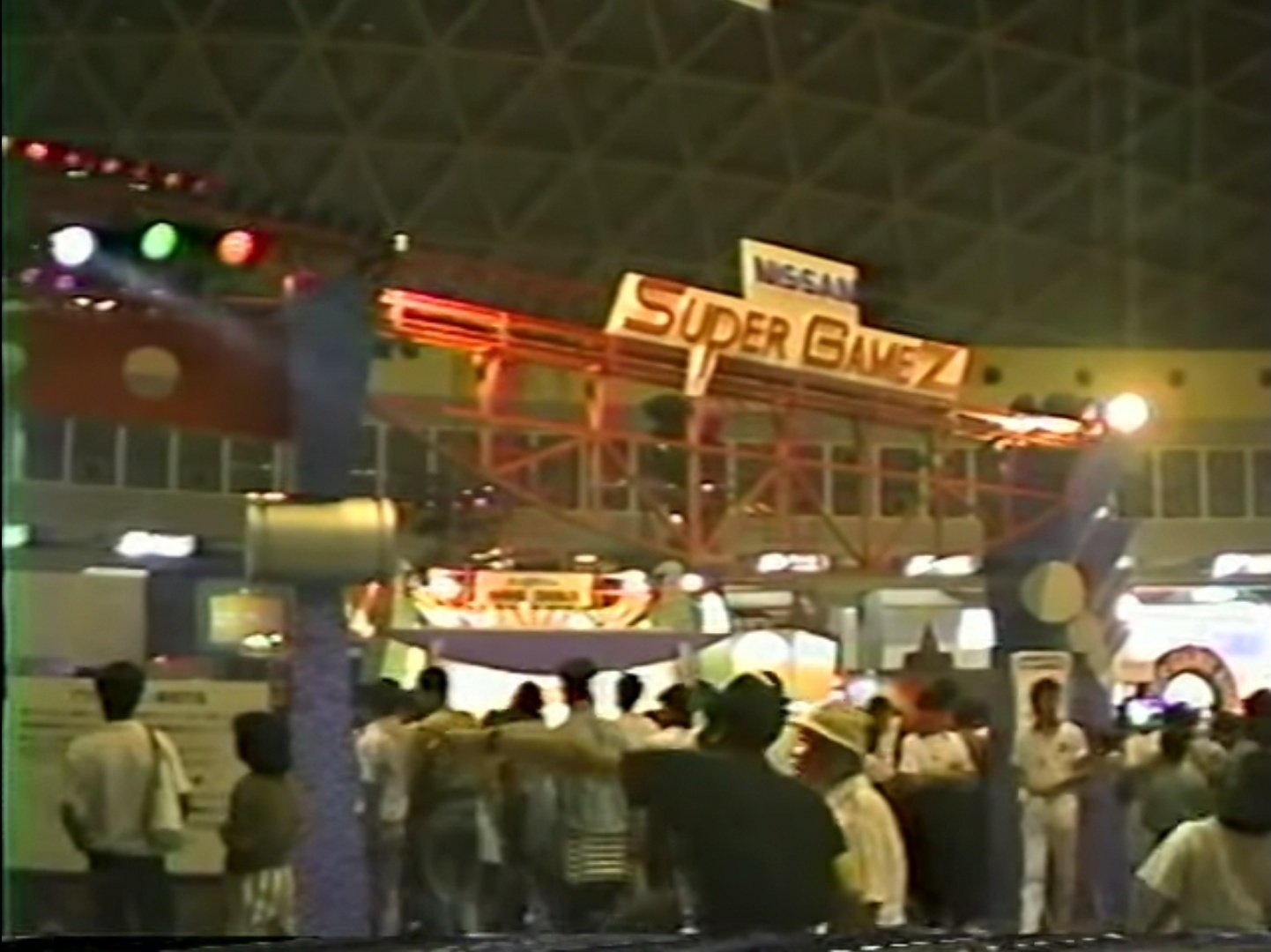
In essence, Super Circuit was a multiplayer driving game, with players sat in sit down arcade cabs – the game actually repurposed old Sega Outrun Deluxe cabinets! The cabinets’ screens gave the player a first person view, streamed from cameras mounted on real life RC cars, of the racing action which took place on a huge 80 metre track which was 1.5 metres wide. Up to six players could take part at any one time.
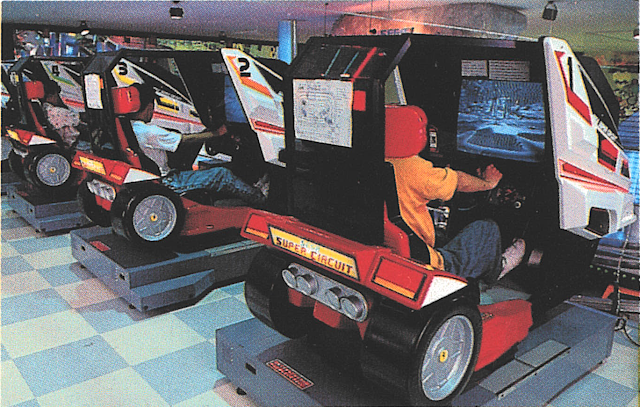
Of course, what this meant was other arcade goers could watch the action live whilst queuing for their turn (waiting times of up to 5 hours were reported at the time). An electronic scoreboard showed the current position of each player.
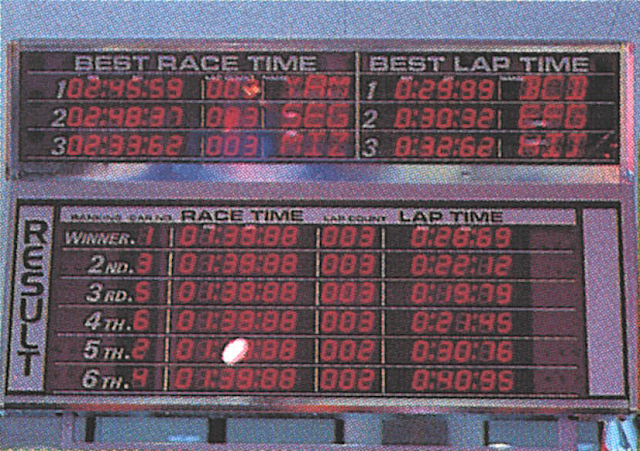
The game’s installation required a great deal of resource – being set in the “real world” required operators to line up the cars for the start of each race, as well as having to rescue stuck cars around the track.
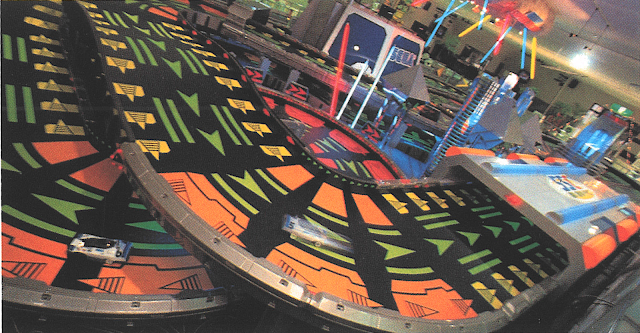
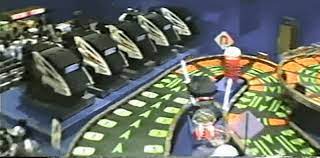
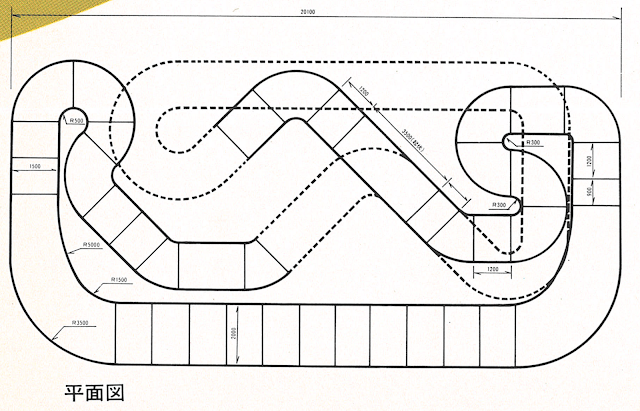
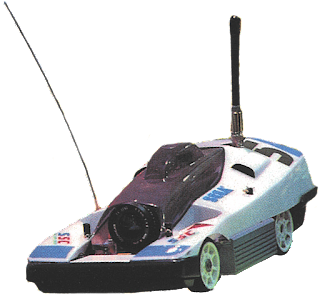
Although the game never made it outside of Japan, and there, was only installed in a handful of locations, several bits of footage of Super Circuit were captured, which you can watch below:
The first 30 seconds of this video shows the game in a more advanced state at a trade show in 1988.
What can you say other than this game is absolutely nuts! A very cool idea though, and one that was picked up by Nintendo recently with its Mario Kart Home: Live Circuit game.
The original sales flyer can be viewed here.
Although Sega Super Circuit provided an interesting playing and viewing experience (not unlike today’s e-sports setups in many ways), its hard to imagine the resources required by an operator to keep this installation running effectively.
Although a failed attempt to innovate the arcade experience, Sega’s Super Circuit provides us with a great snapshot of a time when the likes of Sega tried to push the boundaries of player experiences some 30 years ago.
Thanks and credit to djuk for the info and scans. Do check out his excellent Reassembler blog here.
Thanks for reading this week!
Tony

